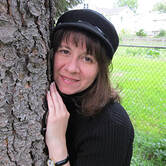|
ricky shore CC Notes Of a Noisy Gum Chewer Even though I was in second grade, I still couldn’t blow bubbles with my chewing gum. It was a milestone, I realized, that I had somehow missed. At seven, it seemed I was always behind. I was the last in my class to lose a tooth and I had struggled to tie my shoelaces. Gum chewing was just another skill I would need to practice more in order to catch up with everyone else. I admired my friends who had contests to see who could blow the biggest bubbles before the gum would pop and splatter all over their faces, covering their mouths, cheeks and noses until they picked off the goo laughing. I wanted to be part of this ritual. One of the neighborhood boys had taught me how to spit, so naturally, I knew he had more talents. I asked him for help. “Chew,” he ordered. And I chewed, whether it was the hard wads of Bazooka or the fad spongy pieces of Hubba Bubba or Bubble Yum. “Flatten it against the roof of your mouth. Poke your tongue and make a space.” He demonstrated. “Then blow.” I tried to follow his directions but with no positive results. I either poked a hole in the thin skin of the gum or scraped the surface with my teeth. Every strategy he offered me was a failure. But I could still chew gum. And chew gum, I did. I wasn’t a quiet gum chewer and was often ordered by my teachers to “Spit out your gum into the trash can” during school hours. Out of school, I chewed so much and so well that my mother complained. “You sound like a cow chewing its cud.” “What’s cud?” I asked one of my brothers when we were out of my mother’s earshot. “Cows regurgitate their food,” he said. “Then they chew it some more.” I stared at him blankly. “Re-ger-gi-tated,” he sounded out the word a bit more slowly. My expression didn’t change. “Puke.” He finally said. “Cows throw up and chew their food more. Then they swallow it again.” For years after this brief conversation, I stopped chewing gum. *** Teenage girls in my small Rust Belt town often hung out at the Pool Hall, a mysterious place that seemed to attract all those on the wrong side of the tracks, as one of my friend’s mothers used to say. Since I lived on the west end of town just a block away from railroad tracks, I wondered what she had met, and if indeed, I was on the right side of the tracks and if not, if I was doomed to spend my teen years at the Pool Hall. That thought wasn’t really upsetting because from what I saw, life at the Pool Hall didn’t seem all that bad. I wasn’t allowed to walk by the Pool Hall, so I crossed the street admiring the girls who often sat on the parked cars, their jeans tight, their shirts tied in knots resting near their belly buttons. Sometimes, I saw them smoking, but often, they just chewed their gum, blowing bubbles that inflated in front of their pouty lips, always reminding me of the teenage girls in movies who suggestively blew bubbles as some time of mysterious method of attracting boys. After years of not chewing, I picked up a piece of gum. The bubbles I had so failed to blow many years before came in tiny, air filled pockets, but I also picked up a more annoying habit, at least in the eyes of my mother. I learned how to snap my gum, cracking the bubbles inside my mouth into a resounding pop, a sharp crackle that made even my own father jump. “Sounds like a damn gunshot,” he said, glaring at me. Since I rarely got any attention from my father, negative or otherwise, his comment startled me. I could feel his disapproval so I stopped chewing gum again. I thought for sure that this would prevent me from any kind of informal membership into the Pool Hall when I got older, but it turned out that I had nothing to worry about. The Pool Hall would close years before I could even consider joining the ranks of teenage, bubble gum chewing girls. *** When Anthony and I first started dating, we were both broke, driving vehicles that always seemed to have a split windshield wiper or a glaring dashboard warning light. It wasn’t unusual for us, in an effort to not hear the grunts, squeaks and groans of our vehicles, to simply turn the volume up on the radio, with the music drowning out any offending noise. But one time, that strategy simply did not work. Coming home from a movie one night, his car sputtered and died and we were forced to drift to the side of the road. When we popped the hood of his car open, we saw that some wires had worked their work way loose from the car battery. In spite of the fact that we twisted and turned the wires, there was too much rust and corrosion for the wires to stay put. We needed something to connect all the parts, at least until we were able to get to a garage. I suggested a piece of chewed gum and with some moist twists and presses, that strategy seemed to do the job. Later, after getting home, we looked underneath the hood at the gooey mess of melted gum, wires and rust, wondering what Anthony’s mechanic would say. But he didn’t say anything. I had a feeling that in a world where everything was held together by spit and duct tape, that a little melted gum wasn’t that unusual. In years afterwards, I would learn the value of chewed gum as a quick fix-it measure. I have used it to keep broken eye glasses together until I could get a new pair. I have used it to help retrieve a small earring that somehow had slipped into the drain of the bathroom sink. Once, I even placed a chewed bit on a broken molar, to keep the sharp edges of the tooth from cutting into my tongue. As a child I never would have dreamed that bubble gum would help keep the pieces of my world together. *** As a woman in my 40’s, I rarely chew gum. Yes, I find myself wanting to pop a piece in my mouth after a meal when a toothbrush is not available, but I know that piece will only be in my mouth for a few moments before a familiar nausea will start to rise from my stomach. It turns out that this feeling is a form of acid reflux and not that unusual. Chewing gum can force bubbles of air into the stomach, but chewing gum is especially problematic on an empty stomach as your brain thinks that you are actually eating real food and when your digestive juices find nothing in your stomach, they gnaw on your stomach linings instead. I’m especially sensitive to this issue because I am an anxious person, and the world is an anxious place. The news is thick with violence, hatred and deceit and in today’s world, we are surrounded by headlines blaring at us from television, radios, and our own cell phones. Plus, I am a professor at a small community college located just about two hours from my home. Most think of such a job as a privilege, and yes, in many ways it is. Others think (those who don’t like reading or writing) that my job is boring and I probably spend my time correcting comma splices, spelling mistakes and logic errors in student papers, and that is part of the job. But a great deal of time is spent worrying about my students. I worry about the one student who told me that her husband’s cancer is back, and that she will need to withdraw from the semester classes to care for him. I worry about another student because, at 19, she is the legal guardian of her younger siblings because the father is in prison and the mother is too mentally ill to care for the family. I worry about the young man who is working two part time jobs to make ends meet. I worry about the young woman who is afraid to come out to her conservative parents. All of these worries weigh on me, and certainly affect my stomach. And apparently, my gum chewing habits. I stopped chewing gum because it literally made me sick. Now, I chew Tums instead.  The author of two poetry chapbooks, Karen J. Weyant’s poems and essays have been published in the Briar Cliff Review, Chautauqua, Crab Creek Review, Crab Orchard Review, Coal Hill Review, Fourth River, Lake Effect, Spillway, Stoneboat, Rattle, and River Styx. She is an Associate Professor of English at Jamestown Community College in Jamestown, New York. Comments are closed.
|
AuthorWrite something about yourself. No need to be fancy, just an overview. Archives
April 2024
Categories |

 RSS Feed
RSS Feed
